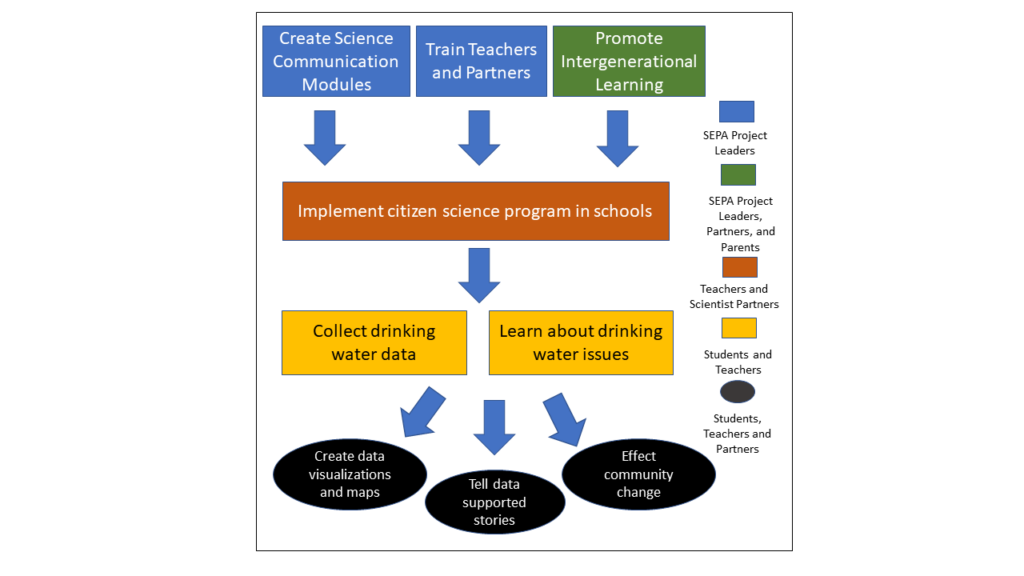MDI Biological Laboratory and Dartmouth College, in collaboration with multiple partners in Maine and New Hampshire, are leading an NIH Science Education Partnership Award (SEPA) project called: “Promoting Environmental Health Literacy through Science Communication and Intergenerational Learning in a K-12 Safe Drinking Water Citizen science Project (Communicating Data)”
High school and middle school teachers from Maine and New Hampshire, along with scientist partners from neighboring institutions, work collaboratively to engage their students as citizen scientists by integrating well water monitoring into their curriculum.
The overall goal is to provide teachers and students with the tools, skills, and support to make sense of well water data so that their analyses can inform data-supported stories that promote actions at the community level, resulting in positive public health outcomes.
The DataCom Workshop will provide time for teachers and scientist partners to collaborate on developing mapping and data analysis skills for supporting science communication, developing a curriculum that includes sampling drinking water and creating community outreach strategies, and building relationships with project partners to support the engagement of their students as citizen scientists who are making a difference in the world.
After completion of the DataCom Workshop, Maine and New Hampshire teachers will implement projects in their classrooms with support from their local scientist partners.
- Teachers will integrate sampling drinking water into new or existing science curricula.
- Students will collect drinking water and/or distribute project information and water collection kits to community members. Samples will be analyzed at the Trace Element Analysis Core at Dartmouth.
- Anonymous data will be uploaded to our online data portal, Anecdata.org. Parents/community members will access their data reports via the project website: All About Arsenic.
- Students will learn to use Tuva data literacy software to interpret and display data for sharing with their communities.
- Teachers and students will tell their data-supported stories to their communities to help drive “Data to Action” and have a real public health impact.
Teachers are required to participate in the DataCom workshop either remotely or in person at MDI Biological Laboratory or review materials and recordings before initiating classroom projects.
If you are interested in participating, please contact Dr. Jane Disney.
